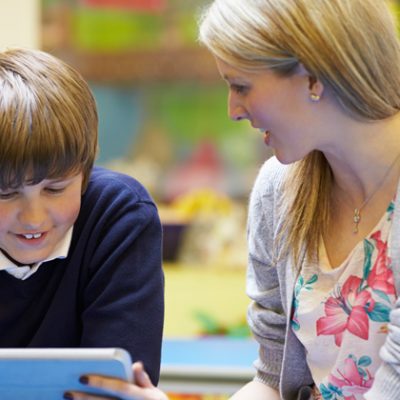Secondary school pupils who struggle to read were provided with “little, if any” reading work when learning from home during the spring term, Ofsted has found.
The watchdog published a blog today detailing the findings from its spring monitoring inspections. For the most part, inspections were conducted remotely and covered schools currently graded inadequate or requires improvement.
These are the key findings:
1) ‘Little’ reading work for struggling secondary pupils . . .
Throughout the spring inspections Ofsted looked at how well schools were developing their teaching of reading, including through remote education.
 It found some secondary schools included whole class reading sessions as part of their form time during remote education sessions, while others set expectations to read daily or provided online books.
It found some secondary schools included whole class reading sessions as part of their form time during remote education sessions, while others set expectations to read daily or provided online books.
However, Ofsted said reading was an area inspectors sometimes asked secondary schools to work further on as they found “for pupils who struggled to read, there tended to be little, if any, reading work going on unless they were actually attending school”.
2) . . . but primary schools ‘rightly prioritised’ teaching of reading
In contrast, primary schools inspected had ‘rightly prioritised’ developing the teaching of reading “even if some had not achieved what they needed to yet”.
“They had trained staff, thought about the best resources to use and had often bought new reading schemes and books”, Ofsted explained.
Phonics teaching continued both on site and at home during lockdown in most primary schools, however schools found it “tricky” to teach it remotely.
Ofsted found many schools provided access to online books while others delivered physical books “to keep reading going while at home”.
The inspectorate also noted that some parents needed more guidance than schools provided to help their children with reading at home and older primary pupils who could not read well “were not always given the support they needed”.
3) The pandemic hasn’t stopped curriculum focus
Ofsted said it was “good to see so many leaders giving careful thought to improving their curriculum” even in light of the disruption of the pandemic.
Yet curriculum thinking and planning “tended to lag behind” in maths and English. The watchdog also recognised that the differing experiences of children during lockdown has “some serious implications for planning and delivering the curriculum”.
4) Pupils ‘switched off’ during third lockdown
The monitoring inspections found that keeping motivated has been a struggle for almost every child during the pandemic.
Yet schools told Ofsted that by the end of the third lockdown, “even children who had been motivated at first, had ‘switched off’ completely.
5) SEND parents ‘too worried’ to send children in
The inspections also found that there was a wide variation in the number of vulnerable pupils and those with special educational needs and disabilities (SEND) attending school.
Ofsted heard that leaders were going “out of their way to encourage children to come into school, so that they could provide them with the support that they needed”.
But they also heard that parents of these children were sometimes “too worried to send their children in.”
6) Remote education access ‘important factor’ to determine lost learning
The blog states that as much of the spring term was spent in lockdown, access to remote education was an important factor in determining how much pupils have learned or missed.
Previously research from Ofsted found some children have no access to computers at home while others use a parent’s phone.
“Remote education does not have to be delivered online. However, the reality is that it often is. As a result, children not being able to take part in, for example, live lessons has been a problem for some families – although there have been efforts to address this.”








What aload of rubbish
Yeah blame the teachers for the pandemic